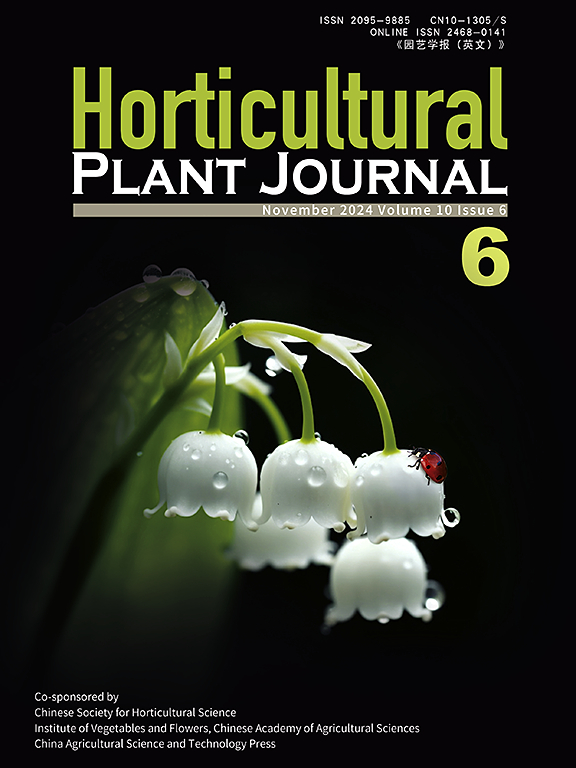Melatonin-mediated physiological and molecular responses to abiotic stress in horticultural crops
IF 5.7
1区 农林科学
Q1 HORTICULTURE
引用次数: 0
Abstract
Horticultural crops suffer massive production losses due to abiotic stress, which is a key limiting factor worldwide. The ability of these crops to withstand such stress has been linked to melatonin, a biomolecule with significant roles in both physiological and molecular defense responses. Melatonin is pivotal in enhancing the resilience of horticultural crops to abiotic stress, making it a critical component in their survival strategies. The application of exogenous melatonin improves abiotic stress tolerance by preserving membrane integrity, maintaining redox equilibrium, scavenging reactive oxygen species effectively, activating antioxidant defense mechanisms, and elevating gene expression related to stress responses. Furthermore, the integrated management of melatonin with other phytohormones demonstrates its potential relevance in addressing various stresses across a wide range of horticultural crops. Therefore, it is crucial to elucidate the physiological and molecular processes involving melatonin in abiotic stress in these crops. Here, we discuss current studies on the use of melatonin in horticultural crops in response to abiotic stresses, and explores future research directions and potential applications to enhance the productivity and abiotic stress tolerance of horticulture crops.褪黑素介导的园艺作物对非生物胁迫的生理和分子反应
在世界范围内,非生物胁迫是制约园艺作物生产的重要因素之一。这些作物抵御这种胁迫的能力与褪黑激素有关,褪黑激素是一种生物分子,在生理和分子防御反应中都起着重要作用。褪黑素在增强园艺作物对非生物胁迫的适应能力方面起着关键作用,是其生存策略的关键组成部分。外源性褪黑素的应用通过保持膜完整性、维持氧化还原平衡、有效清除活性氧、激活抗氧化防御机制和提高与应激反应相关的基因表达来提高非生物胁迫耐受性。此外,褪黑激素与其他植物激素的综合管理表明,它在解决各种园艺作物的各种压力方面具有潜在的相关性。因此,阐明褪黑素在这些作物非生物胁迫中的生理和分子过程至关重要。本文就褪黑素在园艺作物中应用于非生物胁迫的研究现状进行了综述,并对未来的研究方向和应用前景进行了展望,以期提高园艺作物的生产力和抗非生物胁迫能力。
本文章由计算机程序翻译,如有差异,请以英文原文为准。
求助全文
约1分钟内获得全文
求助全文
来源期刊

Horticultural Plant Journal
Environmental Science-Ecology
CiteScore
9.60
自引率
14.00%
发文量
293
审稿时长
33 weeks
期刊介绍:
Horticultural Plant Journal (HPJ) is an OPEN ACCESS international journal. HPJ publishes research related to all horticultural plants, including fruits, vegetables, ornamental plants, tea plants, and medicinal plants, etc. The journal covers all aspects of horticultural crop sciences, including germplasm resources, genetics and breeding, tillage and cultivation, physiology and biochemistry, ecology, genomics, biotechnology, plant protection, postharvest processing, etc. Article types include Original research papers, Reviews, and Short communications.
 求助内容:
求助内容: 应助结果提醒方式:
应助结果提醒方式:


